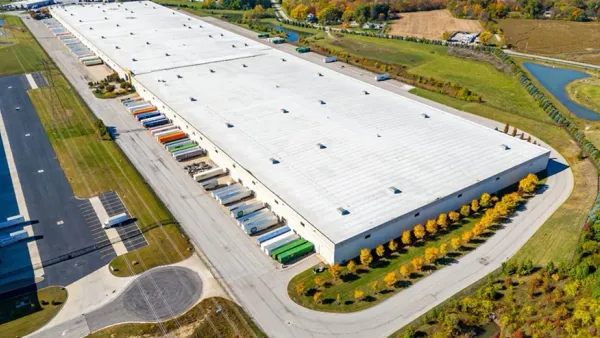Dive Brief:
- Hershey is stepping up its efforts to combat climate change and deforestation in the cocoa supply chain with an agroforestry landscape program in Ghana, along with several new commitments to sustainability initiatives and standards, including a new internal environmental policy, the company announced in a press release Thursday.
- These efforts are part of a $500 million commitment to cocoa supply chain sustainability, announced last year.
- The company also signed the United Nations Global Compact, which entails a commitment to adhere to 10 principles set out by the UN in the areas of human rights, labor, the environment and anti-corruption measures. Hershey further joined the Science-based Targets initiative, which is committed to setting ambitious carbon emissions goals in order to keep the global temperature rise below 2 degrees Celsius.
Dive Insight:
Companies that depend on cocoa are increasingly working to combat climate change, which threatens to seriously affect tropical crops in their upstream supply chain.
"Issues like climate change, deforestation, water demand and pollution, waste and packaging all impact our business and require our attention as we continue to look for ways in which we can reduce our environmental impact," wrote CEO Michelle Buck in a letter announcing the company's new environmental policy.
Acknowledging climate change as a direct and imminent threat to the health of Hershey's business is an important step toward addressing the problem. The policy entails assessing the environmental impact of Hershey's facilities and sourcing practices using science and data-backed evaluation methods.
To combat deforestation, Hershey's senior director of sustainability, CSR and social innovation Jeff King told Fast Company it is working with local governments to help grease the skids for farmers to get legal rights to more land, as a lengthy bureaucratic process often sends them into the forest to grow more cocoa in the first place.
The agroforestry project, a partnership between Hershey, cocoa supplier Ecom, Ghana’s Nature Conservation Research Centre, the Ghana Forestry Commission and the Ghana Cocoa Board will teach farmers new methods to increase crop yield while combating climate change.
Mars, Mondelez and other members of the World Cocoa Foundation have also stepped up their sustainability initiatives in recent months — especially in light of a 2018 Cocoa Barometer Report which concluded 10 years of work to improve the sustainability of the cocoa industry had little effect.
Another motivation for sustainability initiatives in cocoa production is public perception. Crops that have historically been connected with deforestation have a complicated history in the public eye. Palm oil, for example, is the subject of frequent boycotts. And though chocolate is more beloved than palm oil — and to date less controversial — Hershey and other chocolate companies have a vested interest in assuring the public that chocolate is an ethically sound product to buy and consume.
Thursday's announcement from Hershey is, however, light on specifics for a timeline or method of enforcement. It also doesn't say what percentage of the current supply chain meets the new environmental standards they released. The company did not respond to requests for more detail in time for publication.














